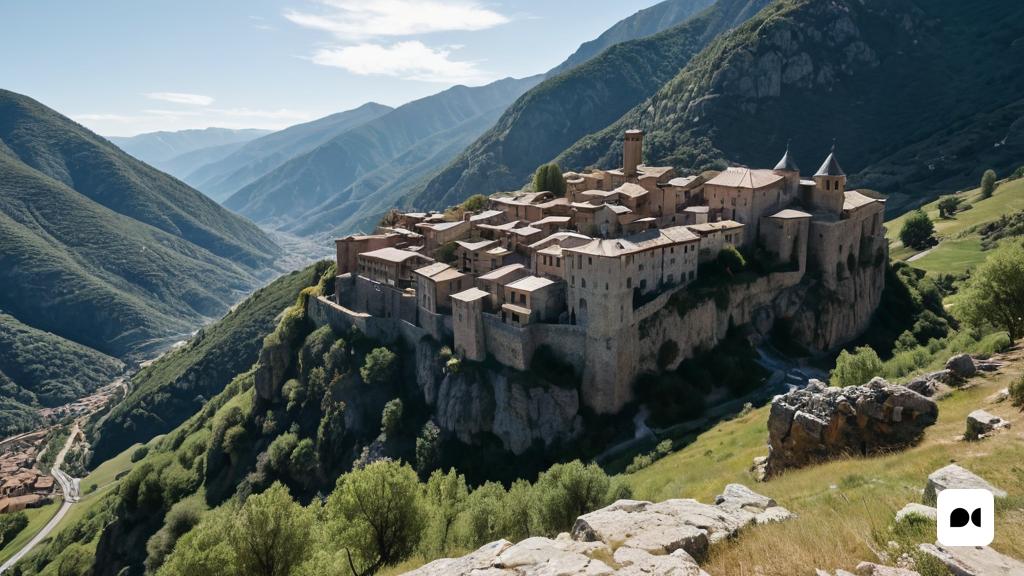The successful series that has conquered the Catalans
The broken cadence with which Carles Porta closed the last episode of Tor, still with the unresolved mystery of who killed Sansa, is part of the success of a series that has captivated millions of viewers in Catalonia. The grace of this product lies in the wisdom with which our national mortuary chronicler has managed the lack of a sentence, extending the temptation of the scapegoat to almost all the inhabitants of this small town in Pallars Sobirà who, with their particular jungle anthropology, show that anyone can have good reasons to end up killing someone. But Tor has triumphed above all because (unlike Crims, a work intended to admire the investigative skill of the Mossos) its author has placed Catalonia in the role of a popular jury. The Catalans, especially their politicians, have been receiving accusations of all kinds for years; finally, we have been able to play the role of vigilantes.
A series that dignifies local characters
Unlike stale products like The Foraster—which treats rural people as if they were a bunch of feral morons, pure monologue fodder—Tor has dignified a series of neighbors with stern skin, lost eyes, and ethics of pure subsistence, connecting them with the essence of myths that we find in Els sots feréstecs, Solitude or La punyalada. In fact, the status of popular jury always ends up stopping in Stockholm, because in an environment like this (which seems very clumsy to the people of Barcelona, but where they wouldn’t last a single night) it is very logical that you feel like kill peña The success of this series has a certain joke, because it shows that fellow citizens always get erections when they are presented with a story structured by the exacerbated love for the land, no matter how inhospitable it may be. He puts the same characters in Eixample and not even God would have shown so much interest.
A different view of violence
At home we have also had fun reversing the history of the Catalans—victims of Vox prosecutors and a very fascist judiciary—and acquiring the power of justice for the first time. Our first choice has always been the hippies, because the communists always bring death and destruction wherever they go. In turn, we have exonerated the extraordinary Palanca, since—with a trashy Hegelianism—we believe that neither he nor Sansa would have been able to survive without their ancestral rivalry. Judging the intentions of a murderer always makes you feel warm, because it puts us in the plot shoes of a criminal without having to share his misdeeds. In turn, while we speculate about a murder, we end up realizing that even the most terrible actions can have perfectly rational motives. If we are a nation as God intended, we also demand to have murderers.
The desire to continue the series
In fact, I wish that Carles Porta can continue his criminology work throughout the country, because we need Catalan murderers like May water. This town of ours is too much of people of peace, of ‘not a single paper on earth’ and so on. This notable chronicler had to come to remind us that we can be just as sons of bitches as the Colombian drug traffickers and the Harlemite mafias. Now that we have fully entered the field of violence, if I were director of TV3, I would commission Porta to create a documentary series about our most illustrious evildoers, from our magnificent genocidal kings to the anarchists of the FAI. It would be something great, and thus we would cause the youth to grow up imbued with the virus of violence (not like us, who fully entered into the process with that Dragui mandate). Now that we are popular juries, we must go one step further and vindicate the bloodthirsty nationals.
Conclusion
The Tor series has managed to captivate millions of viewers in Catalonia thanks to its broken cadence, its focus on the role of popular jury and its different vision of violence. By dignifying local characters and exploring the rational motives behind the most terrible acts, the series has aroused the interest and fascination of the public. Carles Porta, the national mortuary chronicler, has managed to manage the lack of sentence in a masterful manner, extending the temptation of the scapegoat to all the inhabitants of Pallars Sobirà. Without a doubt, Tor is a series that has left its mark on Catalan television and has shown that violence and justice can be exciting topics for the public.

